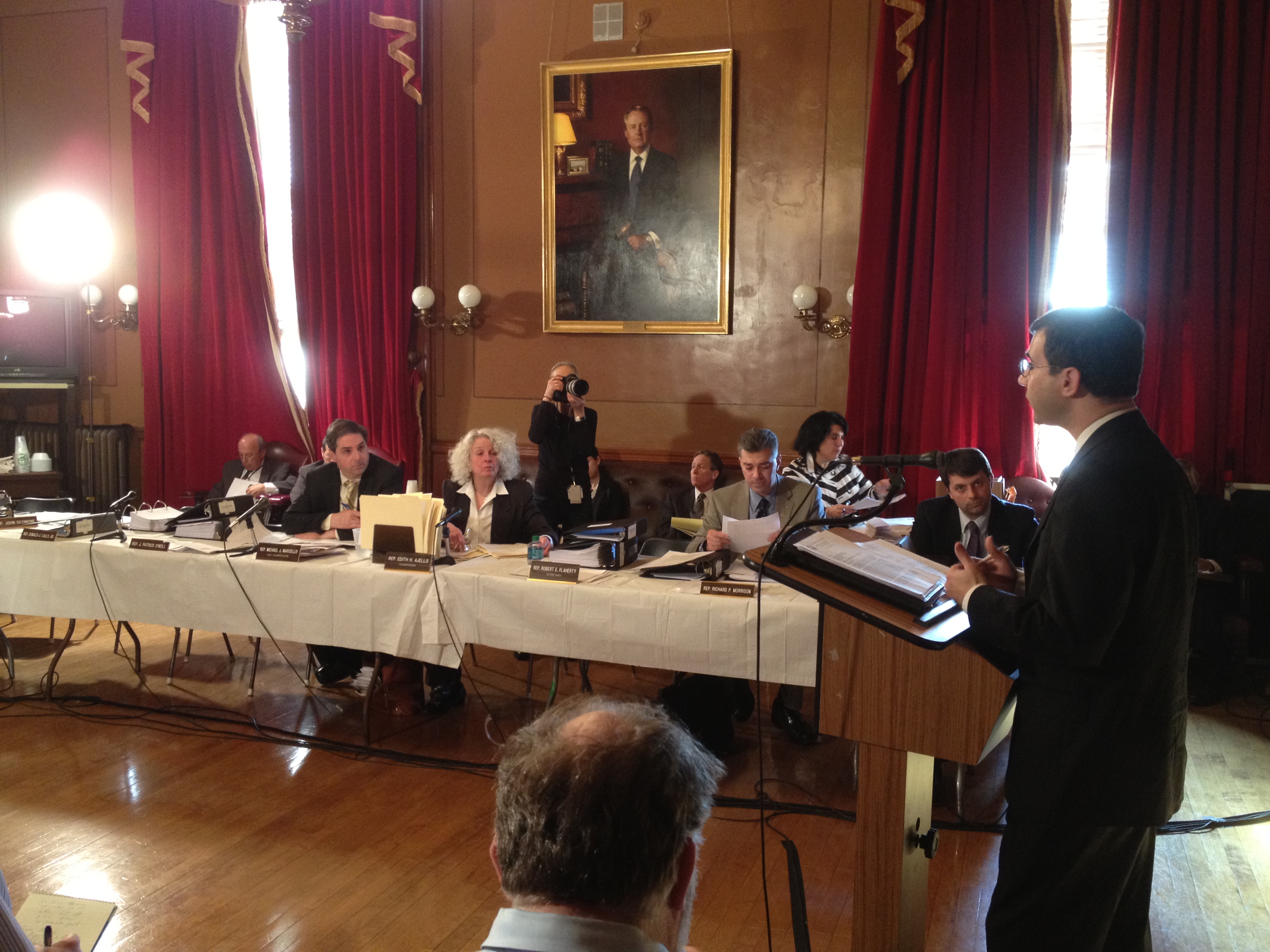 Ada Morales, of North Providence, is a US citizen. But twice she has been detained by law enforcement officials who didn’t realize she she had become naturalized in 1995.
Ada Morales, of North Providence, is a US citizen. But twice she has been detained by law enforcement officials who didn’t realize she she had become naturalized in 1995.
In an effort to ensure the same thing doesn’t happen to her a third time – or someone else for the first time – the RI ACLU is suing state and federal officials saying they violated her constitutional rights.
Here’s the press release from the ACLU:
The ACLU today filed a lawsuit in federal district court on behalf of a North Providence resident who has twice been detained as a deportable “alien” even though she is a U.S. citizen. The lawsuit alleges that federal Immigration and Customs Enforcement (ICE) officials and Rhode Island officials often bypass Constitutional requirements and safeguards when they detain individuals on immigration grounds.
In May 2009, Ms. Ada Morales, who was born in Guatemala and who naturalized as a United States citizen in 1995, was taken into custody on unrelated criminal charges. While she was being held at the ACI, an ICE “immigration detainer” was lodged against her. Even though a judge ordered Ms. Morales released, the R.I. Department of Corrections held her in custody for an additional 24 hours because of the ICE detainer. “When I found out that I was being detained for immigration reasons, I was shocked,” said Ms. Morales. “I told the Rhode Island officials that I’m a U.S. citizen, and I offered to show them my naturalization certificate and passport, but no one would listen. They just assumed they could hold me because of my Guatemalan background and the color of my skin.” An ICE official later apologized to Ms. Morales for her wrongful detention, but acknowledged that it could happen again. In fact, she had been unlawfully detained in virtually identical circumstances once before, in 2004.
“Ms. Morales’s ordeal is another example of how ICE’s detainer practices lead to wrongful detention,” said Kate Desormeau, staff attorney at the ACLU Immigrants’ Rights Project. “ICE has no business detaining U.S. citizens. Yet because of ICE’s practice of issuing detainers first and asking questions later, we’ve seen U.S. citizens unlawfully detained all across the country.” Rhode Island ACLU executive director Steven Brown added: “This case is an important reminder of the collateral damage that harsh immigration policies can cause, and provides a compelling reason why Rhode Island should not be in the business of assisting with federal immigration enforcement.”
An ICE detainer is a document that advises law enforcement officials that ICE may seek to take an individual into custody for deportation purposes once state or local custody ends. The suit alleges that ICE officials issue detainers “without a sufficient investigation to determine whether arrestees who are perceived to be ‘foreign’ (based on their place of birth, race or ethnicity, foreign-sounding last names, and/or English language ability) are in fact U.S. citizens.”
The suit also claims that ICE has been deliberately misleading about the legal effect of immigration detainers, prompting local and state officials to believe that they are required to continue holding individuals on the basis of detainers even though detainers are only requests that a person be held.
ICE agents and state and local officials typically treat a detainer as authorizing continued imprisonment, even if no state or federal charges are pending and no deportation proceedings have been brought. Unlike a criminal warrant, immigration detainers are issued by ICE itself, and are not based upon a probable cause determination by a neutral judicial officer.
The lawsuit claims that federal and state officials violated Ms. Morales’s constitutional rights to due process, equal protection of the laws, and freedom from unreasonable searches and seizures, and seeks injunctive relief and damages for violation of her rights.
The suit is being handled by RI ACLU volunteer attorneys Mark Freel and Erika Lindberg from the law firm of Edwards Wildman Palmer LLP, and National ACLU attorneys Omar Jadwat and Kate Desormeau.







